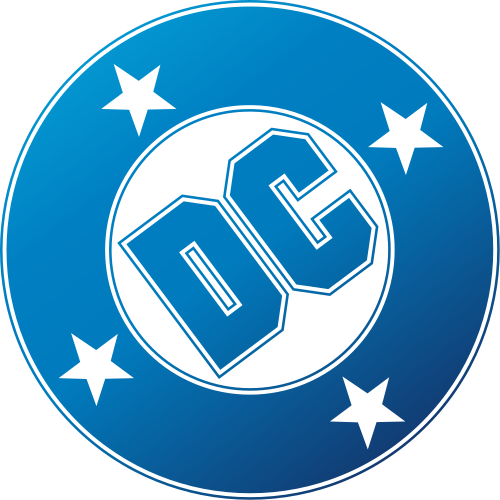When I launched "Wally Wood's T.H.U.N.D.E.R. Agents" in 1984, we based our decision on a marketing survey that identified a significant portion of the U.S. consumers aged 16-30 who had formerly been regular comic book readers, but who felt they had outgrown such childish interests. Translation: Typical fare from DC, Marvel, Archie, Harvey, etc. had not matured along with these consumers. Having discovered a need, we then attempted to meet that need, to launch a line of comic books with literary, artistic, and production values that these consumers could defend to themselves and to their friends and family, as mature recreational vehicles. And thus, the idea of Deluxe Comics was born.
Much thought went into the selection of our first title. It had to be super-hero-based, as that was what most mainstream consumers looked for in comic books. It also, however, needed to present "mature" issues and perspectives. Union by-laws, inter--office rivalries, budget cuts, dueling loyalties, realistic, everyday hassles and concerns we all face in life, but which rarely crop up to interfere with the super-hero saving the day. We thought and thought, and soon realized that one time previously, such a concept had been attempted: The T.H.U.N.D.E.R. Agents. A little legal research, and we discovered to our delight that the original publisher, Tower, had been flagrant in its failure to make the slightest attempt to protect the trademarks or copyrights of its characters or the books in which they had appeared. the T.H.U.N.D.E.R. Agents were in the public domain!
Launching Deluxe Comics was a gamble that cost several hundreds of thousands of 1984 dollars. Why would we risk it all on public domain characters that anyone could publish in competition with us? Because we would be the first ones in the comic book stores and our product would be so far superior to any johnny-come-latelies that we would not fear the competition. How were we superior? We had signed contracts with George Perez, Keith Giffen, Jerry Ordway, Dave Cockrum, Murphy Anderson, Rich Buckler, Steve Ditko, and many other fan favorites. We printed our books on bleached heavyweight Baxter paper, and we used airbrushing to color our pages. We delivered 40 pages of story in addition to pin up pages and letters pages. Nothing like it had ever been attempted. We had Dave Cockrum inking George Perez (the only time ever!). We had Murphy Anderson inking Dave Cockrum (the only time ever!). George Perez illustrated all our covers, signed. Nothing like "Wally Wood's T.H.U.N.D.E.R. Agents" had ever been seen, then or now.
Sadly, after the release of issue #2, Deluxe was sued by a fan who had paid hard cash to Tower for a quit claim in which Tower gave to the fan "whatever rights, if any" it held in the T.H.U.N.D.E.R. Agents. As explained, above, they had no rights, so neither did the fan. Contrary to urban legend in the comic book industry, he did not win his law suit. He lost it! He lost it so badly, the judge would not even allow the Deluxe attorney to plead our position. The judge listened to the fan's attorney's opening remarks, held a ten minute recess to review our rebuttal, and returned to give a ruling from the bench: The fan had no rights to the Tower characters and original books, as they were all in the public domain. End of discussion. We won. Deluxe then went on to publish three more issues of "Wally Wood's T.H.U.N.D.E.R. Agents," issues # 3-5. We could not have done that had we lost.
So, why did we cease publication of "Wally Wood's T.H.U.N.D.E.R. Agents?" The fan, refusing to give up, brought an appeal, and named four of the largest national comic book wholesalers as co-defendants. In response, they dropped carrying our book. Without them, we could not stay in business. Sometime afterwards, then-Marvel Editor-in-Chief Jim Shooter became interested in publishing the T.H.U.N.D.E.R. Agents. He had his legal people look into it. They reported back: Tower could not produce a single piece of paper suggesting ownership rights.The T.H.U.N.D.E.R. Agents were in the public domain. Unlike Deluxe, Marvel was not willing to invest in public domain characters. I wonder what DC paid for "the rights" considering there are none. I, however, meticulously maintained the rights to our five published issues, and to our unique modifications to the individual characters. If DC would like to pay me for my rights, I would be happy to oblige.
